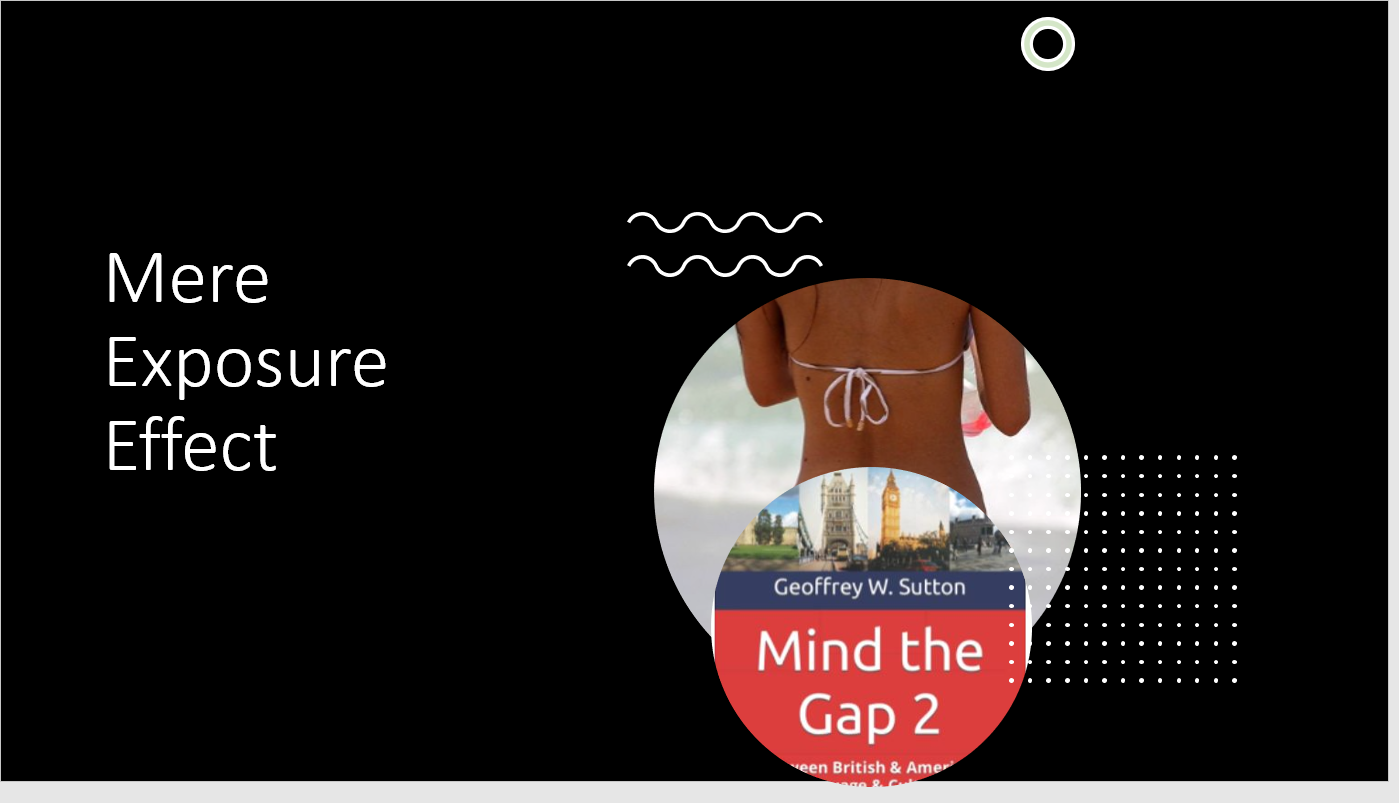In psychological science, the mere exposure effect is the increased preference people show for something that appears familiar because they have repeatedly encountered the stimulus.
The mere exposure effect began as a hypothesis and was tested by assessing the positive emotional response to words. Words that were more frequent were much preferred over less frequently occuring words.
First impressions matter. The strongest effects were found for the early repetitions. The effect declined over time.
Research supporting the mere exposure effect is credited to University of Michigan psychologist, Robert A. Zajonc (1968).
The mere exposure effect is evident in music and art preferences. Repeated exposure to new music or art works increases their desirability. For an example of exposure to art, see Cutting (2003).
Advertisers rely on the mere exposure effect when they repeatedly present a brand name in various venues.
Cite this post
Sutton, G. W. (2022). Mere exposure effect. Sutton Psychology. Retrieved from https://suttonpsychology.blogspot.com/2022/05/mere-exposure-effect.html
Related Posts
References
Cutting, J.E. Gustave Caillebotte, French Impressionism, and mere exposure. Psychonomic Bulletin & Review 10, 319–343 (2003). https://doi.org/10.3758/BF03196493
Zajonc, R. B. (1968). Attitudinal effects of mere exposure. Journal of Personality and Social Psychology, 9(2) part 2, 1-27.
Connections
Publications (many free downloads)

Comments